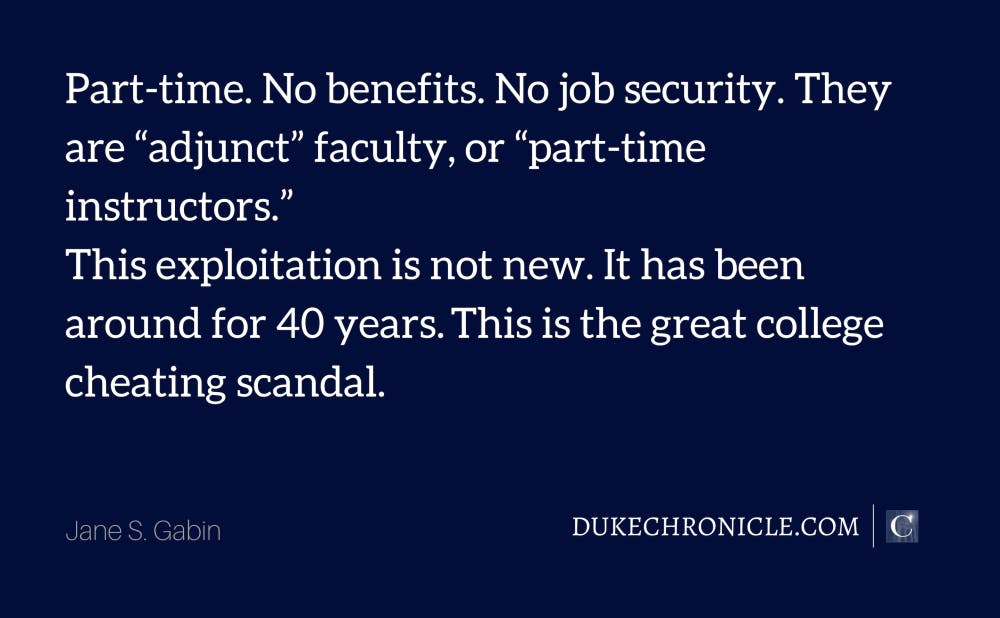Reading Wednesday's Chronicle, I saw an editorial on “The invisible labor of marginalized faculty.” It described how 15 Yale faculty recently left its program on Ethnicity, Race, and Migration over that University’s alleged neglect; the program, created in 1997, was unsupported, relying on volunteer work. It’s shocking that an institution of Yale’s caliber would so disrespect the efforts of minority faculty and students.
But these faculty, although they feel marginalized, are at least faculty. They have options. When I originally spotted the headline, I thought I’d be reading about truly marginalized teachers—perhaps not at Yale, or at Duke. But many colleges and universities employ 40 percent, 50 percent, 60 percent or more of their faculty on a “contingent” basis.
Part-time. No benefits. No job security. They are “adjunct” faculty, or “part-time instructors”—at Ohio State they’re called “off the street faculty.” This exploitation is not new. It has been around for 40 years.
This is the great college cheating scandal. No wonder faculty and grad students are striking and taking institutions to court. Colleges pay them as little as possible. Grad students take longer to finish degrees, and teachers who rely on part-time jobs often have to have several. This doesn’t just affect public colleges and universities—private and religious universities are among the worst offenders.
Just look at stats. On the Internet, check the Common Data Set (CDS) for any school. See how many full-time faculty a college has, compared with the number of part-timers. If you have friends or younger siblings looking at colleges, make sure they ask these questions: Who will be teaching us? Are they compensated fairly? Do they have job security?
Meanwhile, the same colleges that exploit a huge percentage of their teaching staff give huge salaries to administrators. Those who are cheated—undergraduates and poorly-paid teachers—will remember. Ultimately, unless the national trend of “profit first” changes, all of academia will wither and die, not just targeted programs.
Jane S. Gabin, Ph.D.
Get The Chronicle straight to your inbox
Sign up for our weekly newsletter. Cancel at any time.

